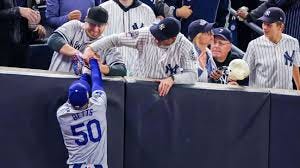Identity crisis: What do we value?
Fridge Philosophy explores clinging to external factors vs embracing our internal selves
Note: Since 2018, I have placed these short quotes on our refrigerator at home to provide subtle hints for successful, thoughtful, and purposeful practices in hopes my teens would internalize them. Along the way, I found them helpful in my own life.
I own a MINI Countryman. Before purchasing my car two and a half years ago, we were practical with our vehicle choices—a Toyota Corolla, three Honda CR-Vs, and a Nissan Altima. We didn’t need frills or status. We needed utility, gas mileage, and a car that would take our family of four to school, soccer games, dance recitals, and pizza.
But as I began shopping for a car, I strayed from that edict. I had one child in college and another on the way. I wanted to feel something as I drove my car. I wanted to have fun driving it. I wanted my car to reflect my identity.
As I test-drove the MINI, I smiled. I loved how it handled and zipped around. I loved the color—blue with a white roof and mirror accents—and how I felt driving it. I was now a MINI guy, just like my dad was a Corvette guy.
But as Sue Monk Kidd describes above, is being a “MINI guy” an external reflection of my internal identity or an attempt to adopt an external one?
In a column in Psychology Today, Elizabeth Thornton writes about the External Validation Mental Model. Society is based on a lot of them. They create social norms and boundaries and provide “bumpers,” that inner voice that reads the room and tells us how to act that will keep us in the room.
But those mental models can create unhealthy expectations and self-identity. Thornton writes, “The problem, given what we now know, is that if you base your self-concept on what you think others think of you, then you will always be vulnerable. Your self-concept has no true foundation.”
I began thinking of the false sense of self external identity brings to our lives watching Game 3 of the World Series. In the game, Dodgers outfielder Mookie Betts leaped up to the edge of the right-field wall and caught a foul ball as it came into the stands. Yankee fan Austin Capobianco, sitting in the first row, grabbed Betts' glove with both hands and pried the ball out while Capobianco's friend, John Peter grabbed Betts' non-glove hand.
Both fans were ejected and banned from Game 5. After the game and interviewed at a local bar, Capobianco said, "We're not going to go out of our way to attack. If it's in our area, we're going to 'D' up. Someone defends, someone knocks the ball. We talk about it. We're willing to do this."
Capobianco and his friend identify as Yankee fans. This is what they believe being a Yankee fan is. In 2011, Giant fan Brian Stow was beaten within inches of his life by Dodger fans walking back to his car in the parking lot. Thirteen years later, he continues to feel the effects of this senseless violence. To those who assaulted Stow, being a “fan” meant destroying the competition, literally. We are winners. They are losers.
On Tuesday, we had a contentious election. The partisan divides are deep, and my sense is that those divides are tied to the identity of an external party rather than having our political affiliation reflect our perspective. What’s the difference?
I’m Red, or I’m Blue. I love Donald Trump, or I hate Donald Trump. Anyone who is against him is my enemy. Anyone who is for him is “garbage.” That is our identity litmus test. And when we tie ourselves to this identity, it’s easy for cable news, social media, and our own echo chambers to harden our opinions and be manipulated. Try having a reasonable conversation about this election. Share the candidate for whom you voted. And watch the love and hate that comes your way.
Instead, by understanding our true identity, we know who we are. We know life is full of nuance. We know that in life, joy comes from love and cooperation, not from strife and “owning” the other side. But cultivating our own identity takes work within ourselves. Who are we? What do we stand for? What is our role in relation to others? How do we treat other humans, particularly those with whom we may differ in opinion, beliefs, or sports uniforms?
Some may say that they could never be friends who voted for Trump or voted for Harris. Their votes reflect their values, and they do not match ours. But what if it’s a long-time friend who was there repeatedly when we needed them? Aren’t we allowing our external identity to overtake us?
And how about my MINI? Is my car a reflection of my identity or an external validation? My guess is it’s the latter, but I’ll accept that for now. I’m having a lot of fun driving that little car.
Like Fridge Philosophies? Check out more in the Fridge Philosophy Section.
Side of Mustard: More on that election
A couple of notes on the election.
We know who we elected. We shouldn’t be surprised by what happens next.
I can’t control what happens in the external environment. I can only control how I react, care for others, be a voice for those who cannot speak up, and treat others with a spirit of love. Always lean into kindness.
Media manipulation has always been real. From Hearst to Murdoch, candidates make their pilgrimages. A column by
in Substack this week, The Elon Times, shared the dynamics between legacy media, social media, and podcasts. I saw first-hand how thumbs were pressed on the scales. The social media app owned by the billionaire was focused on folks in the #writingcommunity until September. Then, it became filled with propaganda, particularly focused on electing the former President. Post election, that propaganda was gone.I can’t control the external environment, only my internal space within it.




